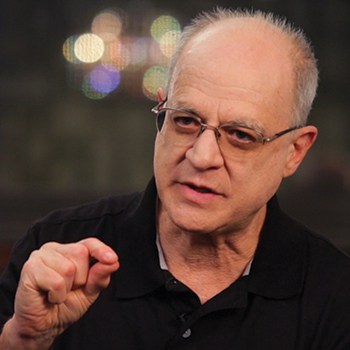
Plaintiff’s lawyers are now faced with a sudden and unexpected shift in American culture that has radically changed how jurors think and deliberate. Incorrect assumptions about who the best and worst jurors may be for your client’s case can lead you to striking jurors who would have returned the best verdict for your client.
In this presentation, David Ball and Artemis Malekpour share their latest insights on plaintiff’s advocacy. They teach you how to create, and become part of, a cohesive group whose purpose is to provide justice and improve community safety.
David and Artemis focus on how to change and refine your methods to work in today’s fractious social climate. They discuss jurors’ changing views on scientific proof, feelings of alienation, and views of authority figures. This lecture also covers David Ball’s most recent thinking on using Rules of the Road™ in your cases.
David and Artemis also introduce a set of powerful tools to present damages during opening and closing statements that are not included in David Ball on Damages. These tools will help you strengthen your opening and empower your jurors to return the verdict you seek in closing.
Lastly, the final section is a special all-star panel discussion with David Ball, Artemis Malekpour, Joshua Karton, and Eric Oliver, that provides additional valuable insights on how you can succeed with today’s jurors.
Please Note:
If you choose the Audiobook option, you can access it through theTrial Guides App for Lawyers button on your account page.Click here for further information on Audiobooks
*Please note: This video includes highlights from an exclusive live event. Due to copyright and other restrictions, this DVD set does not include any written materials from the conference. To learn more about our upcoming CLE events, visit our CLE page or give us a call at 1-800-309-6845.
Disc One
- It Is Important to Keep Learning While You Practice
- We Are Practicing in Perilous Times
- Focus Group Demonstration
- Tribalism in Juries (and Society)
- Understanding a Person’s Strongly Held Beliefs
- Reinforcing Our Beliefs through Limited Information
- Cognitive Dissonance
- Republican Juror Belief Systems
- Obtaining a Unanimous Jury During Politically Divided Times
- A Trump Juror Is Not Always a Bad Juror for the Plaintiff
- Seeking Common Values
- Jurors Seek Authentic, Trustable Lawyers Who Respect Them
- Factors That Drive Juror Anger
- Political Division Is More Problematic Than Tort Reform
- Trial Is Never About You—It’s About the Jury
- Changing and Refining Our Methods
- The Alienation of the Jury Can Drive Damages in Your Case
- Relying on Redirect Invites Disaster
- Reason and Logic Will Not Win Trials
Disc Two
- Some Jurors Won’t Believe Scientific Proof
- Focus on the Defendant’s Bad Conduct
- Jurors Want Lawyers to Protect Society
- “Tug Numbers”
- Anchoring of Concepts, Arguments, and Rules
- Never Tell Jurors What to Think
Disc Three
- Screening for Case Weaknesses
- Pre-Empting Common Issues of Concern in Jury Deliberations
- David Ball Discusses the Domino Theory
- Descriptive Terms for Conservatives
- Differentiating “Rule” and “Duty”
- Problems with Reading Your Opening or Closing
Disc Four
- Problems with Using Legalese
- Powerful Tools for the Unconscious Mind
- Closing Statement
- The Purpose of Compensation Is to Deter Conduct
- Arguing Damages against Multiple Defendants
- Reconsidering Negligence Arguments
- Focusing on Your Most Important Task
- Troubleshooting Common Problems
- Who Can Testify versus Who Should Testify
Disc Five
- Introduction
- Limiting the Legal Team in Trial
- Performance in Closing
- Alignment
- “Backwards” Analysis of Cases
- Asking for Noneconomic Damages
- Be Careful of Assuming Jurors will Relate to Your Client
- Attributing the Damages to the Defendant throughout Trial
- Using Reptile Concepts to Increase Damages
- Conservatives Hate Blamers and Love Punishment
- Strikes for Cause Help Other Jurors
- Offensively Using a Late Admission of Liability
- Discussing Admissions with Jurors
- Words Matter in Addressing Liability


